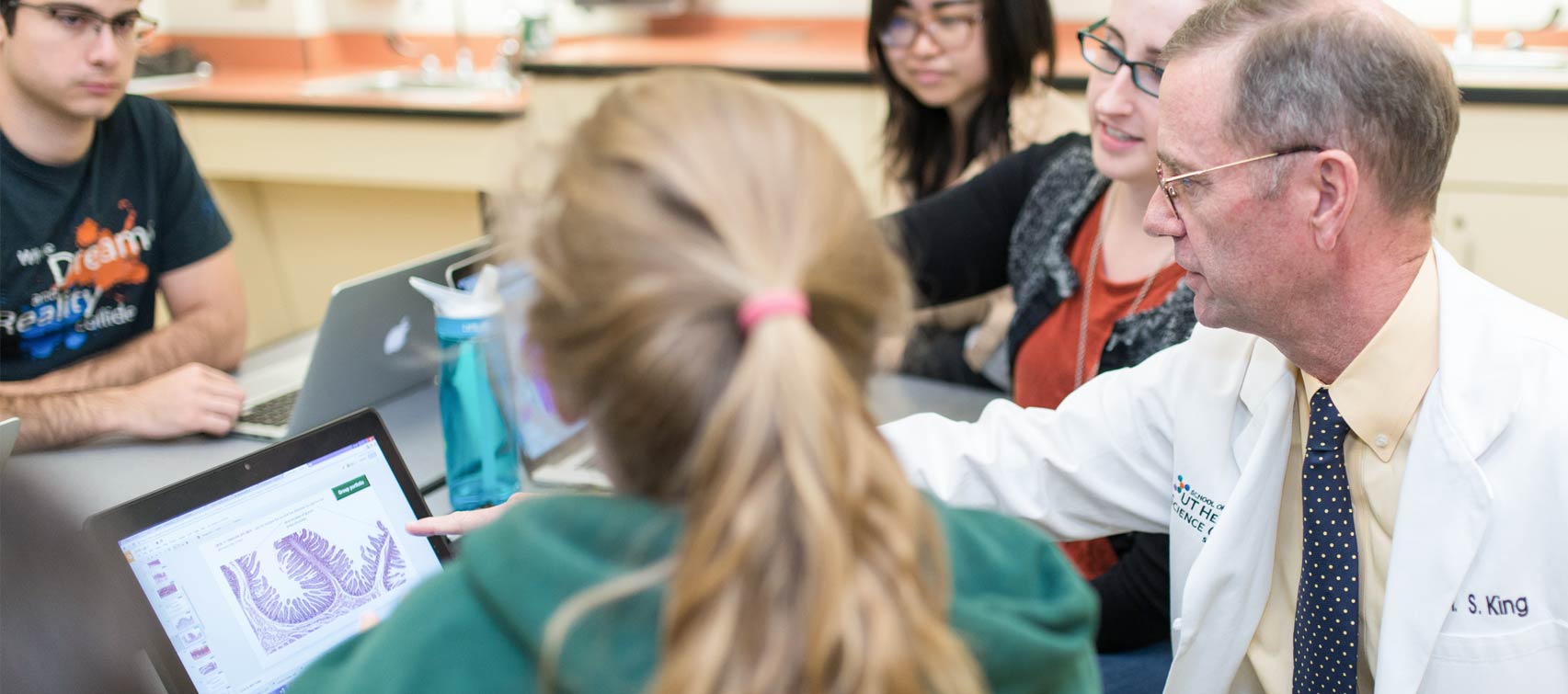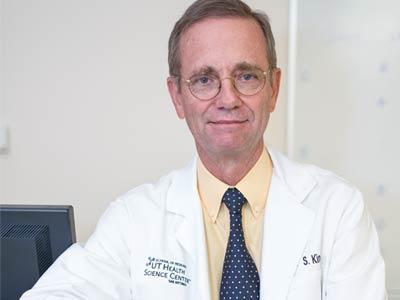Thomas King, Ph.D., discovered an interest in biomedical research as an undergraduate student at Davidson College in North Carolina, where he participated in cardiovascular research. The next logical step seemed to be medical school.
He returned to his home state to attend the Medical University of South Carolina in Charleston. After doing poorly on the first gross anatomy exam, however, he wondered if his plan was over before it started. He moped a bit. Then he decided to find a new study strategy.
“Everybody trips. It’s your response to tripping that matters,” he said. “Tripping is a way of knowing you are pushing yourself. If you don’t trip at least every now and then, you may not be trying hard enough.”
He approached anatomy as if he had to teach the class. It was a revelation.
By digging deep into the material, he discovered he could absorb more concepts. It worked far beyond his gross anatomy exams. He is now a Distinguished Teaching Professor in the School of Medicine in the Department of Cellular and Structural Biology, with a cross-appointment in the Department of Obstetrics and Gynecology at the UT Health Science Center San Antonio.
“It was an eye-opener,” Dr. King said. “When you have to teach it, you take ownership of it. That’s what teaching is all about: It’s owning something and taking possession of it and sharing it with someone else.”
Dr. King is co-director of The Fundamentals: Molecules to Medicine module and instructor in most of the other modules in the preclinical curriculum. He was honored as a 2015 Piper Professor by the Minnie Stevens Piper Foundation. Only 10 faculty members across Texas are honored as Piper Professors each year.
Changing curriculum, changing study styles
Teaching styles have dramatically changed through the years Dr. King has been an educator, and he’s been at the forefront of that change at the Health Science Center. Dr. King was a member of a task force created to design and develop a new, clinically integrated medical curriculum that places increased emphasis on student self-directed learning. Courses are more interactive than the medical schools of the past.
“The focus of medical education has shifted 180 degrees. We’ve gone from a heavily lecture-based curriculum to an interactive, clinically integrated program,” he said.
With the approach, called team-based learning, students prepare for class by viewing learning materials online. Next, students take a readiness quiz. Then they meet in groups and take the same quiz as a group. They discuss not only what the answer is, but also what makes the answer correct. The session then continues with application exercises.
“One student might initially have greater insight into the problem or question than others; you see them teaching each other,” Dr. King said. “That’s valuable. You learn from faculty one way, and from your peers in another way. And you learn when you have to teach or explain a concept to someone else.”
Love of learning, love of teaching
No matter what his students end up doing in life, Dr. King sees the ability to teach others as a critical component. Medicine, after all, hinges on education—from a physician educating a patient about an illness to a researcher sharing a new discovery with colleagues.
“I love learning. I love pathology. I love looking things up and putting it all together for students. I love teaching,” Dr. King said. “When I see [students] get that grin on their faces, it tells me that they’re getting it. That they will come to own this themselves and later share it with others down the road. And that’s what this is all about.
“If you know the material, if you own it, then it is yours to give — on an exam, to a fellow student, to a future patient or to a colleague.”

